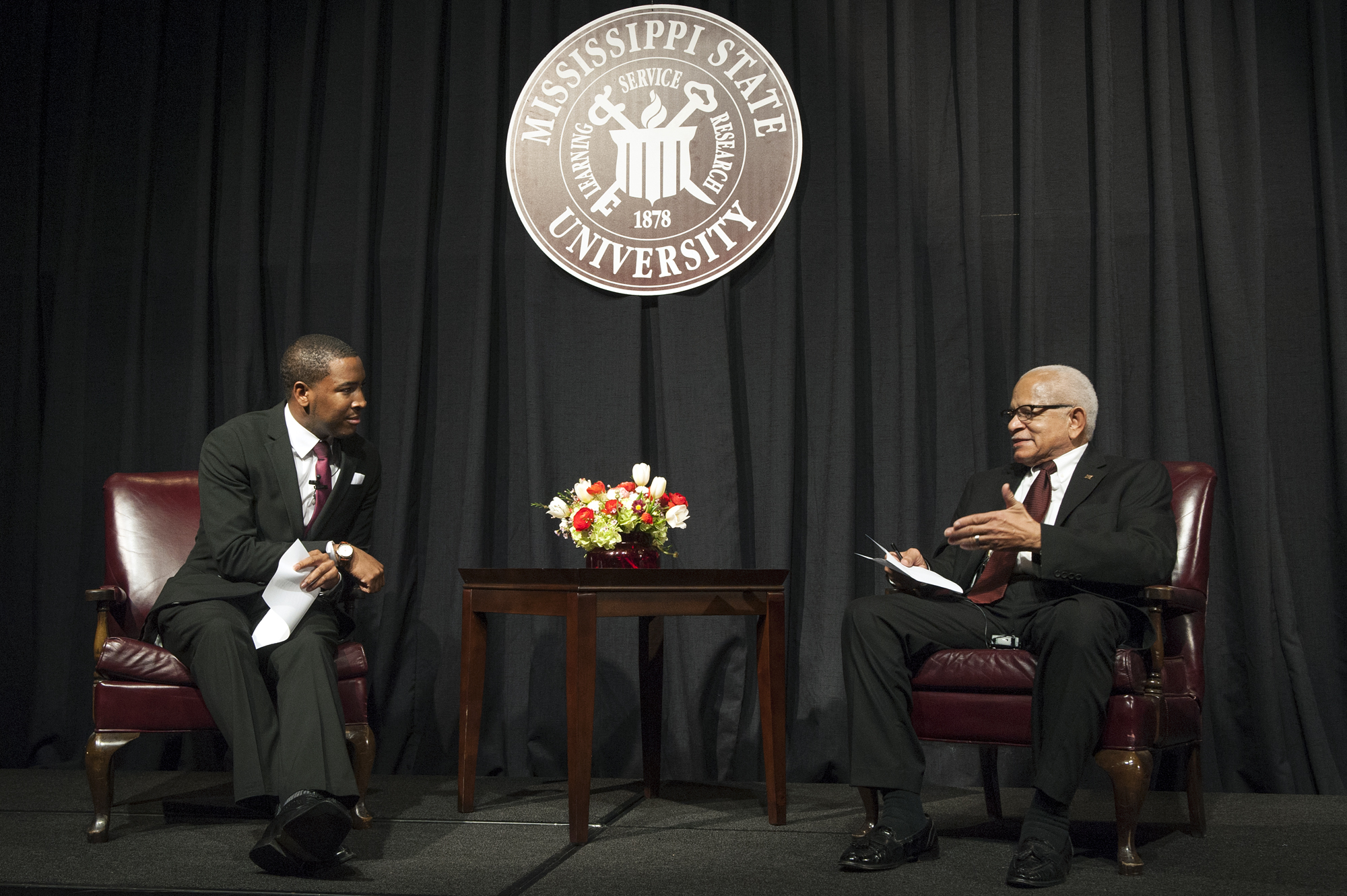Contact: Leah Barbour

Photo by: Beth Wynn
STARKVILLE, Miss.--What Dr. Richard E. Holmes starts, he finishes.
That's why the first African-American student to study at Mississippi State completed both his bachelor's and master's degrees at the university.
During his campus visit Tuesday [Feb. 4], the retired physician and Columbus resident helped kick off Black History Month at MSU with "Leading out Front: A Conversation with Dr. Richard Holmes."
The general public, as well as university students and employees, gathered in the Colvard Student Union's Bill R. Foster Ballroom to ask Holmes questions and thank him for being an integration trailblazer.
Holmes enrolled and began taking MSU courses in the summer of 1965. He received a bachelor's degree in liberal arts in 1969 and a master's in microbiology in 1973. He completed his medical degree at Michigan State University in 1977.
"In 1965, I met Dr. Morris Kinsey, and Dr. Kinsey had just graduated from Michigan State with a Ph.D.," Holmes said. "He mentioned that at Michigan State, there was a new medical school there, and said, 'If you're interested in going to medical school, I'll write the dean and I'll introduce you.'"
When the time came for Holmes to apply, he took Kinsey's offer. He became a longtime, well-respected physician in Birmingham, Ala., where he served for more than 20 years. Then, he and his family moved to Columbus, and he joined the physician staff at MSU's Longest Student Health Center. He retired from the university in 2007.
Holmes was asked whether professors, students or others had tried to discourage him from attaining his education goals.
He acknowledged challenges as the land-grant institution's first African-American student. Though most students and teachers treated him with dignity and respect, he recalled one particular student who didn't want to be his partner in a microbiology lab course.
"The microbiology professor said, 'If you won't be Holmes' partner, you can't take the course,' so he proceeded to be my partner," Holmes said.
About a week after the incident, his white partner's hair accidentally caught fire from the lab station's Bunsen burner. The ballroom audience roared with laughter when Holmes said the partner didn't seem embarrassed to receive his help in putting out the fire.
Though he often felt lonely as a student, Holmes said he is proud to have attended MSU, especially in light of the large African-American population of students and professors at the university today.
He said the recent achievement of Donald M. "Field" Brown of Vicksburg, MSU's first Rhodes Scholar since 1911, is proof of the excellent education the university offers to all races.
"You have to recognize, we are a top university, and you can dream and follow your passion," Holmes said. "Having the new Rhodes Scholar means we're a top school, and you can do the same thing.
"I dreamed that I would do what I wanted to do, and I got to go to medical school," he emphasized. "I never gave up, so follow your dream and your passion, and don't quit. Keep fighting."
Holmes' visit was sponsored by the Richard Holmes Cultural Diversity Center--named in his honor--and the NAACP.
Learn more about MSU at www.msstate.edu.